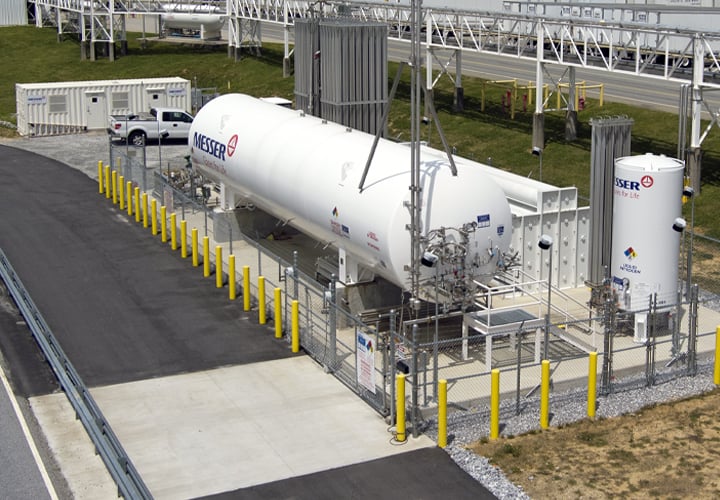Ask our team. We're here to help!
Public Transit
We offer turnkey solutions for transit fleets of all sizes with high-capacity gas compressors or liquid hydrogen pumps.

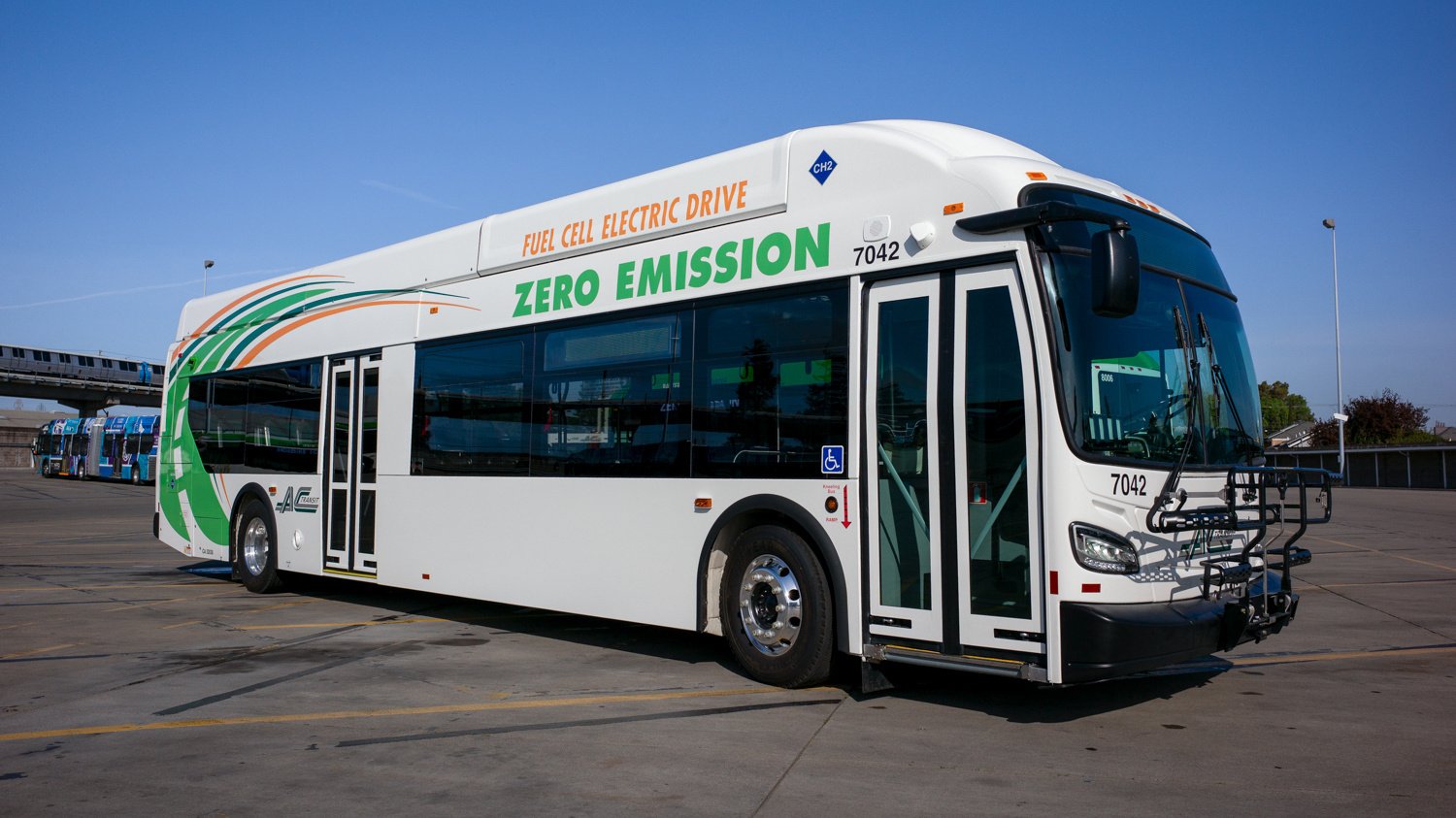
Hydrogen, the lightest element on earth, is changing the way the world moves. As a safe transportation energy source, hydrogen offers clean, zero emission energy to power fuel cells that are 2-3 times more energy efficient than combustion engines. Unlike batteries, hydrogen fuel cells are not dependent on the electrical grid for re-charging and can be refueled quickly. As a result, hydrogen fuel cells are powering a movement across all mobility segments.
The key to making this revolution a reality is the safe and reliable delivery of hydrogen fuel to zero emission fuel cell vehicles. Messer is at the forefront of hydrogen fueling technology that delivers a seamless experience for operators of critical applications ranging from forklifts to public transit systems. Our hydrogen mobility solutions are backed by deep experience and a long-term commitment to service, maintenance, and operations support. Paired with a dependable hydrogen supply from our nationwide distribution network, we offer solutions to help you start harnessing the power of hydrogen for your mission-critical vehicles.



As regulatory pressure for clean transportation solutions grows and public hydrogen fueling infrastructure proliferates, the value of hydrogen technology will only increase. Now is a great time to begin investing in hydrogen fueling systems! The Messer team can help specify the right equipment, work with vendors to enhance existing investments, or develop a new solution to meet your unique needs.

Messer hydrogen mobility solutions support vehicles which match or exceed the fueling performance of diesel and gasoline, offering improved efficiency in a broad array of applications.
We offer turnkey solutions for transit fleets of all sizes with high-capacity gas compressors or liquid hydrogen pumps.


The trucking industry hauls goods huge distances, and the fuel efficiency (and re-fueling speed) of these miles makes a direct impact on the bottom line.

Messer is expanding our work with heavy duty public transit vehicles to hydrogen-fueling for commercial trucks.
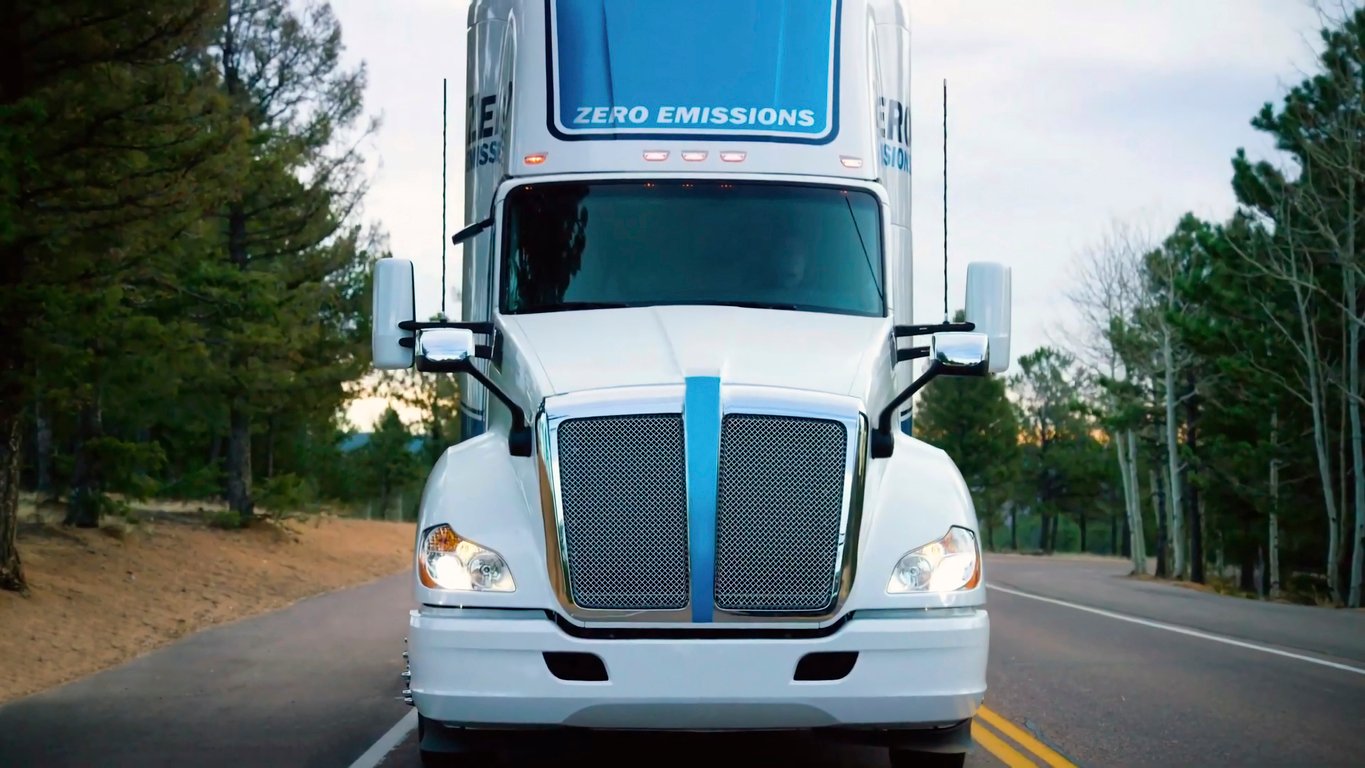
Hydrogen provides an ideal fuel for material handling vehicles like forklifts, which often require specialized indoor fueling stations for code compliance.  Messer has been creating fueling solutions for handling equipment since 2004. We provide the hydrogen systems used by some of the largest manufacturing and logistics operations in North America.
Messer has been creating fueling solutions for handling equipment since 2004. We provide the hydrogen systems used by some of the largest manufacturing and logistics operations in North America.
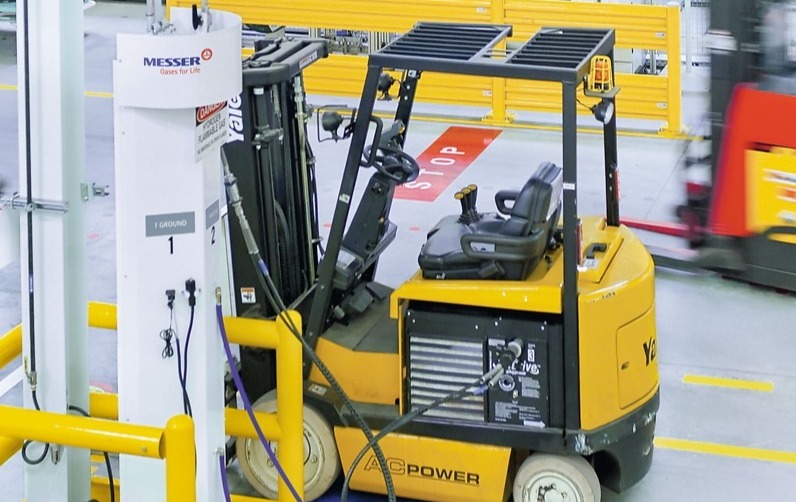
Hydrogen fueling is increasingly important as hydrogen-based vehicle designs hit the mainstream. 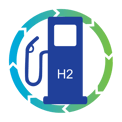
Messer’s team constructed some of the first 700 bar, high-capacity light vehicle stations in the US.
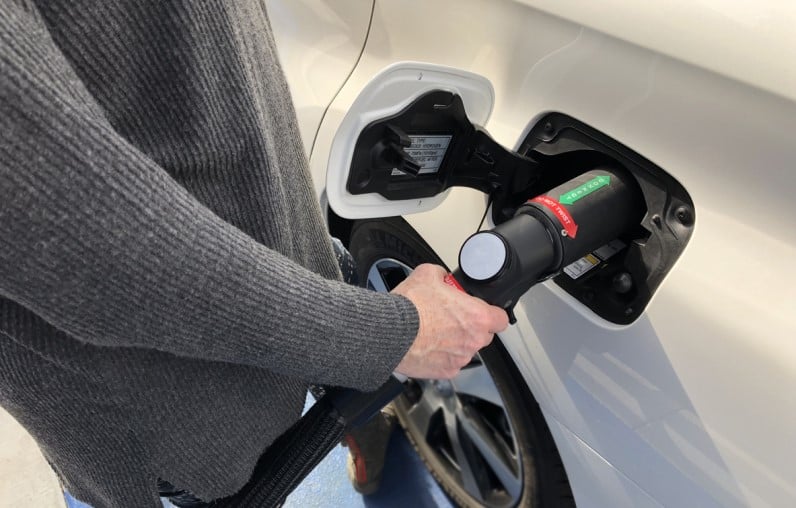
Yes, if the proper precautions are taken. And hydrogen offers important advantages over other fuel sources. Unlike other fuels, it is not toxic, and a leak or spill will not contaminate the environment or hurt humans or wildlife. Hydrogen vapor is significantly lighter than gasoline vapor, making it more likely to disperse rapidly and less likely to ignite.
Hydrogen Safety Video
Download Hydrogen Safety Data Sheet
For more safety training and standards resources visit the Compressed Gas Association (CGA) Hydrogen Safety Publications, see the NFPA 2, Hydrogen Technologies Code or the DOE Hydrogen Safety resources page.
Hydrogen is often referred to by colors, such as gray, green, blue and many others. These colors refer to how the hydrogen is produced but do not give a true understanding of the hydrogen’s impact from a carbon emissions perspective. The Department of Energy (DOE) has defined clean hydrogen as “hydrogen produced with a Carbon Intensity (CI) equal to or less than 2 kilograms of carbon dioxide-equivalent produced at the site of production per kilogram of hydrogen produced” (Infrastructure Investment and Jobs Act Section 822(b)(1) (15 Nov 2021)). Messer currently offers hydrogen with a range of carbon intensities, and we work with customers to design the most cost-effective supply chain for hydrogen that meets their CI score objectives to meet funding requirements and their sustainability targets.
Although fuel cells are less efficient than batteries in an absolute sense, there are important additional factors to consider. Accounting for the current energy mix in electric generation and the electricity consumed in battery production, hydrogen fuel can offer roughly equivalent efficiency—while offering the advantage of grid independence.
